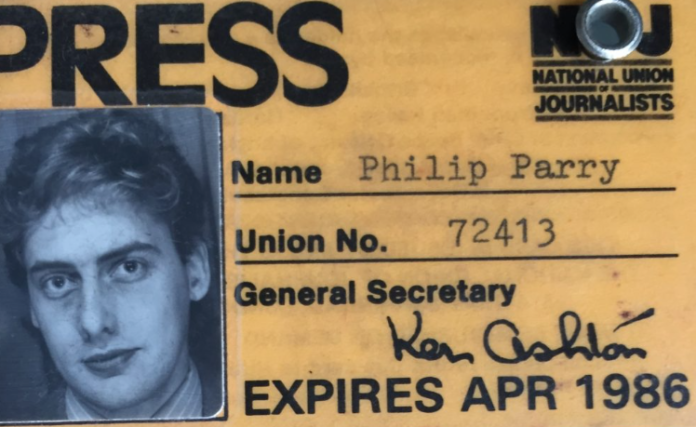- Lucy in the sky behind bars - 5th February 2026
- Sorry is the hardest word… - 4th February 2026
- Car trouble - 3rd February 2026
 The UK Government is making changes to controversial disability cuts plans after being rocked by the scale of protests, and the news has highlighted how the only ‘consultation’ meeting in Wales before them was first cancelled, then restored after concerted pressure from the media, including The Eye, as well as campaigners.
The UK Government is making changes to controversial disability cuts plans after being rocked by the scale of protests, and the news has highlighted how the only ‘consultation’ meeting in Wales before them was first cancelled, then restored after concerted pressure from the media, including The Eye, as well as campaigners.
But the meeting did not live up to expectations for demonstrators, with one saying: “It felt humiliating. Like being silenced in plain sight”.
It has been claimed that up to 800,000 people stand to lose support entirely across the UK under the proposals from the Department for Work and Pensions (DWP), while the poorest disabled claimants could be stripped of as much as £886 per month.
A cross-party group of MPs on Poverty and Inequality (PI), say the ‘reforms’ (which are part of Labour’s ‘Pathways to Work’ Green Paper), will make a “dire situation” even worse for families already struggling with soaring bills and hardship.

Siân Berry, Green MP and co-chair of the parliamentary group, declared: “Disabled people are already squeezed beyond belief, they’re already living in much deeper poverty [than the general population]… The new proposals will make things much, much worse. The government needs to start from scratch. It’s just a disaster on every front”.
The scheme has sparked fury from all corners – with campaigners, charities and dozens of Labour MPs urging UK ministers to abandon the changes, branding them “impossible to support”.

Shocked by how large the protests have become, Sir Keir Starmer’s government are about to alter them, with The Guardian reporting earlier this week: “More than 120 MPs are poised to rebel against the government next Tuesday and there remains division at the top of government over how to stem the growing anger.
“Concessions under consideration include changes to the points needed for eligibility for personal independence payments (Pip), a benefit paid to those both in and out of work.


“MPs also want to see changes made to other reforms affecting the health top-up for universal credit which applies to those who cannot work.
“The prime minister’s chief of staff, Morgan McSweeney, has been having one-on-one talks with senior rebels. A number of cabinet ministers are now said to believe the bill has no chance of passing in its current form, though some are still being deployed to speak to angry MPs in an attempt to win them over.”
The BBC reported today: “The government has confirmed it will make changes to its welfare bill following pressure from Labour rebels on its planned changes to benefits.
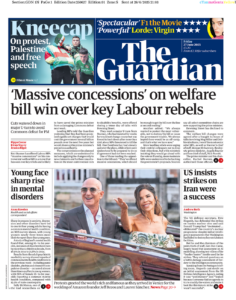 “In a letter to MPs, Work and Pensions Secretary Liz Kendall said claimants of the Personal Independence Payment (Pip) will continue to receive what they currently get, as will recipients of the health element of Universal Credit.Instead, planned cuts will only hit future claimants.
“In a letter to MPs, Work and Pensions Secretary Liz Kendall said claimants of the Personal Independence Payment (Pip) will continue to receive what they currently get, as will recipients of the health element of Universal Credit.Instead, planned cuts will only hit future claimants.
“The concessions amount to a massive climbdown from the government, which was facing the prospect of defeat if it failed to accommodate the demands of over 100 backbenchers.
But Disabled People Against Cuts Cymru (DPAC Cymru) announced: “There are no last-minute concessions that can patch over the problems with this flawed and rushed bill. What the government must do now is withdraw it, and allow time to read the responses to the public consultation, which doesn’t even end until the 30th. It is unconscionable to hold a vote before considering those responses, let alone while the ink is still dry”.

On Monday the solitary Welsh ‘consultation’ took place in Cardiff, but was described by a disabled campaigner as ‘unjust’, ‘humiliating’ and a ‘rubber stamp’ exercise.
Joshua Reeves BEM, who was refused access to the meeting, proclaimed that he had been “…left outside in 30-degree heat while the event began without me. Despite four DWP note takers being present, no one came out to include me or others facing access barriers. That wasn’t a mistake — it was a message. And let’s be honest: they knew exactly who I was”.
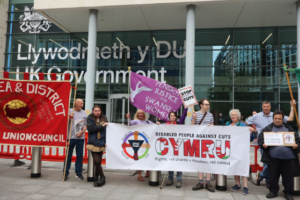
“It felt humiliating. Like being silenced in plain sight. I showed up with lived experience, policy insight, and a platform — and was still treated as an inconvenience.
“This event wasn’t about listening to disabled people. It was about rubber-stamping pre-written plans to dismantle our support systems. Under the guise of ‘engagement’, the DWP is pushing through brutal cuts to lifelines like PIP and Access to Work — systems that are already crumbling. This is not reform. It’s removal — of autonomy, dignity, and survival.”
Here then is our story about these extraordinary events from earlier this year

–

After strong pressure from a Welsh-based disability rights group, and an angry open letter to the UK minister with responsibility for policy, as well as embarrassing stories from the media including The Eye, the solitary ‘consultation’ in Wales before planned benefit cuts has now been reinstated, but worries about accessibility remain.
in a media statement giving the news from the Department for Work and Pensions (DWP), the Swansea Disabled People Against Cuts (DPAC) announced: “We are glad that the disability cuts consultation event for Wales has now been rearranged in a central location with sufficient notice. But let there be no doubt: like everywhere else, disabled people in Wales would have had to settle for a blatantly discriminatory and inaccessible consultation if we had not, through campaigning, forced the DWP to do better“.
The group stated in its statement: “It should not have taken protests, media scrutiny (including from The Eye), and a member of the Senedd (literally) raising our letter in the Welsh Parliament for the DWP to properly arrange a simple meeting”.
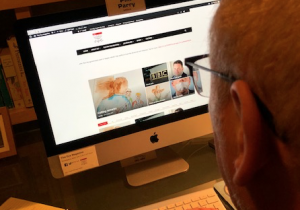
DPAC re-published the DWP notice confirming this restoration which stated: “Individual emails confirming accessibility requirements, reasonable adjustments, carers/ companions, and dietary requirements will be sent separately, but if there are any additional requirements you would like us to be aware of, please respond to this email to confirm”.
In one public letter from DPAC to Sir Stephen Timms, MP, they stated: “We are concerned you still do not understand the failures of your department. We have had no indication from you, or the DWP, whatsoever, in any statement, that you understand that the (planned, then cancelled and now reinstated) consultation was organised in a way that was unsuitable for disabled people.
“You should thank the venue for saving your skin by cancelling at the last minute. The DWP’s arrangements were so poor that if the consultation had gone ahead as planned, it would have been blatant disability discrimination.

“The failures were staggering, and happened despite repeated warnings. We needed to know the venue so that we could plan our journeys, accommodation, and access requirements. We were ignored. We were promised a central location. Disabled people hoping to travel across Wales to take part were given merely three working day’s notice of a remote and inaccessible venue.”
The hurriedly re-scheduled consultation meeting in Wales is set against a disturbing backdrop, where there are growing protests against benefit cuts, and the UK Government has been forced to embark on U-turns, as with winter fuel payments.
The Guardian reported about this change of heart: “The reversal comes despite Downing Street ruling out making changes to winter fuel payments after the Guardian revealed that it was rethinking the cut amid anxiety at the top of government that the policy could wreak serious electoral damage”.
Even before Wales’ solitary consultation was cancelled (and now reinstated), there had been enormous controversy about it.
Earlier DPAC Swansea held a demonstration in the city, with a simultaneous protest in Cardiff proclaiming: “ We have almost zero faith in a consultation process that starts, on day one, by outlining all the areas it will not be consulting on. The most controversial proposals are not even up for discussion. There is one, and only one, in-person consultation event for the whole of Wales. Our MPs are ignoring our letters”.
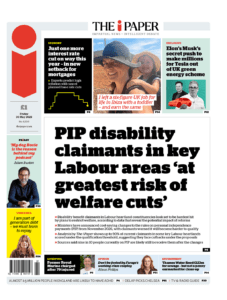 But there have been a number of revolts against the plans which have shaken the UK Government, and they may now be ready to make adjustments to the legislation, although it will NOT be called a ‘U-turn’.
But there have been a number of revolts against the plans which have shaken the UK Government, and they may now be ready to make adjustments to the legislation, although it will NOT be called a ‘U-turn’.
Ministers are examining a potential change that could allow up to 200,000 people to keep their disability benefits by tweaking assessment rules.
They are looking at potential changes to mollify Labour backbenchers and others, whose anger has been obvious.
The Financial Times (FT) reported that one of the alterations may be in the proposed assessment rules for Personal Independence Payments (PIP), so that individuals who receive a high overall score continue to be eligible, even if they do not receive at least four points in any category.
Another potential tweak could mean more time is given to claimants who lose access to one disability benefit to apply for other support they may be eligible for, and benefit claimants could be given longer “transitional periods” to ease the impact of losing support.

Sir Keir Starmer has been under huge pressure over his welfare cuts since they were blamed for Labour’s poor local election results in England, so ministers are looking at potential changes to the disability benefit cuts as a way of staving off a major backbench rebellion against them.
Like the proposed disability cuts, other benefits too are in the spotlight, with Wales at the heart of the drama.
Eluned Morgan First Minister of Wales (FMW), urged the UK Government to scrap the two-child benefit cap, saying it was “damaging for lots of families in Wales”.

Meanwhile the Chancellor Rachel Reeves’ local Labour party was to call for her to abandon the controversial proposals.
The Leeds West and Pudsey Constituency Labour Party (CLP), which campaigned to return Ms Reeves to the UK Parliament last year as its MP, had agreed to write to her “as soon as possible” to make clear it does not support the cuts.
Opposition on Ms Reeves’s home patch, echo those in South Wales, and come as the UK Government grows increasingly anxious over appeasing its backbenchers concerning the scheme.
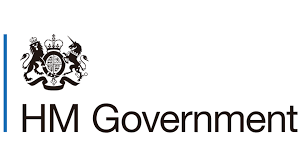
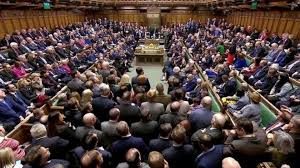
About 100 Labour MPs, more than a quarter of the party’s parliamentary numbers, are reported to have signed a letter urging ministers to scale back the benefit cuts.
Some MPs have expressed resentment at how the leadership is said to be handling opposition to the changes.
One newly elected MP said: “There hasn’t been any real attempt at engagement. It’s been left to backbenchers to hustle for a meeting. They almost see it as a virility test. It’s not helpful politics”.

Relations have been further strained after a highly critical letter published in The Guardian – in which 42 MPs told the Prime Minister that planned disability cuts would be “impossible to support” – did not get a response from Sir Keir’s office.
The MP added: “You’d think the leadership would say: ‘I’m a bit pissed you went to the papers but let’s talk about what you said.’ No one has made any overtures”.
There is understood to be unrest among newly elected MPs who feel they are being expected to defend policies they were not elected for while not being allowed any input.

One MP said: “Unless the government comes up with the idea, it doesn’t count. It’s a case of the new intake thinking: ‘I haven’t realised I’m irrelevant’”.
Another senior backbencher said: “I strongly think Number 10 see the PLP as a problem to be dealt with. The advisers around Keir think the PLP is an inconvenience…”.
The growing protests may become more than an ‘inconvenience’ for the UK Government if Wales’ only benefit cuts consultation has now been re-scheduled after mounting anger, and pressure from the media about the extraordinary situation…
- And now if those demonstrations are underlined by making changes because of them!

Details of our Editor (who is himself disabled) Phil Parry’s astonishing decades-long journalistic career (when protests against Government policies were often covered), as he was gripped by the rare and incurable neurological condition Hereditary Spastic Paraplegia (HSP), have been released in an important book ‘A GOOD STORY’. Order it now.







